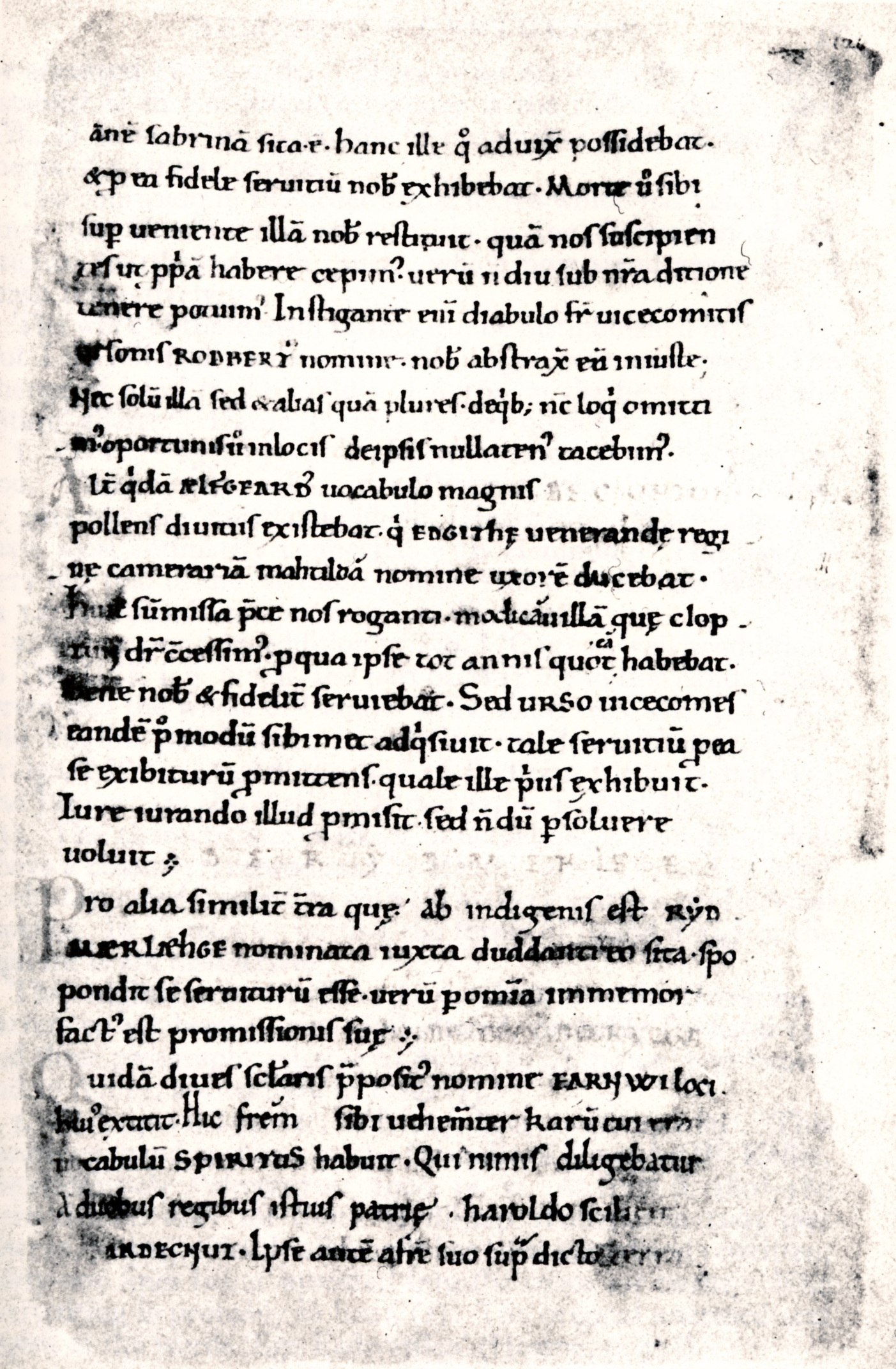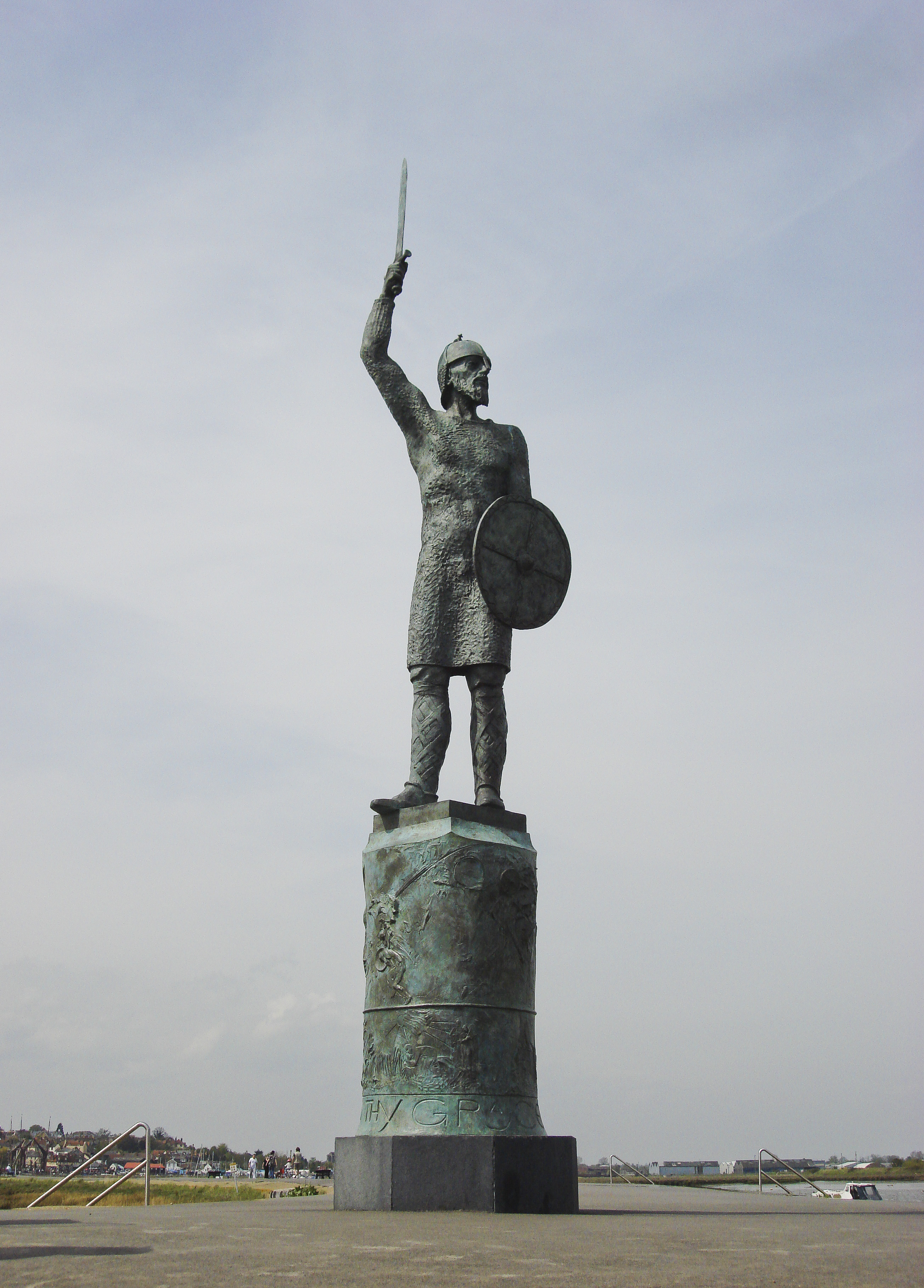|
Ealdormen Of Mercia
Ealdorman (, ) was a term in Anglo-Saxon England which originally applied to a man of high status, including some of royal birth, whose authority was independent of the king. It evolved in meaning and in the eighth century was sometimes applied to the former kings of territories which had submitted to great powers such as Mercia. In Wessex in the second half of the ninth century it meant the leaders of individual shires appointed by the king. By the tenth century ealdormen had become the local representatives of the West Saxon king of England. Ealdormen would lead in battle, preside over courts and levy taxation. Ealdormanries were the most prestigious royal appointments, the possession of noble families and semi-independent rulers. Their territories became large, often covering former kingdoms such as Mercia or Kingdom of East Anglia, East Anglia. Southern ealdormen often attended court, reflecting increasing centralisation of the kingdom, but the loyalty of northern ealdormen w ... [...More Info...] [...Related Items...] OR: [Wikipedia] [Google] [Baidu] |
Collins English Dictionary
The ''Collins English Dictionary'' is a printed and online dictionary of English. It is published by HarperCollins in Glasgow. The edition of the dictionary in 1979 with Patrick Hanks as editor and Laurence Urdang as editorial director, was the first British English dictionary to be typeset from the output from a computer database in a specified format. This meant that every aspect of an entry was handled by a different editor using different forms or templates. Once all the entries for an entry had been assembled, they were passed on to be keyed into the slowly assembled dictionary database which was completed for the typesetting of the first edition. In a later edition, they increasingly used the Bank of English established by John Sinclair at COBUILD to provide typical citations rather than examples composed by the lexicographer. Editions The current edition is the 13th edition, which was published in November 2018. The previous edition was the 12th edition, which was pu ... [...More Info...] [...Related Items...] OR: [Wikipedia] [Google] [Baidu] |
Ann Williams (historian)
Ann Williams (born 1937) is an English medievalist, historian and author. Before retiring she worked at the Polytechnic of North London, where she was Senior Lecturer in Medieval History. She is a Fellow of the Society of Antiquaries and a research fellow at the University of East Anglia The University of East Anglia (UEA) is a public research university in Norwich, England. Established in 1963 on a campus west of the city centre, the university has four faculties and 26 schools of study. The annual income of the institution f .... Her numerous works include: * ''A Biographical Dictionary of Dark Age Britain: England, Scotland, and Wales, c.500–c.1050'', Routledge (1991), with Alfred P. Smyth and D. P. Kirby. Williams wrote the English entries. * ''The English and the Norman Conquest'' (Woodbridge, 1995) * ''Land, Power and Politics: the family estates and patronage of Odda of Deerhurst'' (Deerhurst, 1997) * ''Kingship and Government in Pre-Conquest England, c. 500– ... [...More Info...] [...Related Items...] OR: [Wikipedia] [Google] [Baidu] |
Oxford University Press
Oxford University Press (OUP) is the university press of the University of Oxford. It is the largest university press in the world, and its printing history dates back to the 1480s. Having been officially granted the legal right to print books by decree in 1586, it is the second oldest university press after Cambridge University Press. It is a department of the University of Oxford and is governed by a group of 15 academics known as the Delegates of the Press, who are appointed by the vice-chancellor of the University of Oxford. The Delegates of the Press are led by the Secretary to the Delegates, who serves as OUP's chief executive and as its major representative on other university bodies. Oxford University Press has had a similar governance structure since the 17th century. The press is located on Walton Street, Oxford, opposite Somerville College, in the inner suburb of Jericho. For the last 500 years, OUP has primarily focused on the publication of pedagogical texts and ... [...More Info...] [...Related Items...] OR: [Wikipedia] [Google] [Baidu] |
Frank Stenton
Sir Frank Merry Stenton, FBA (17 May 1880 – 15 September 1967) was an English historian of Anglo-Saxon England, and president of the Royal Historical Society (1937–1945). The son of Henry Stenton of Southwell, Nottinghamshire, he was educated at Keble College, Oxford, and was elected an Honorary Fellow in 1947. With Allen Mawer, Stenton wrote the second English Place-Name Society volume, ''The Place-Names of Buckinghamshire'', published in 1925. He delivered the Ford Lectures at Oxford University in 1929. He went on to write ''Anglo-Saxon England'', a volume of the Oxford History of England, first published in 1943 and widely considered a classic history of the period. Stenton was a professor of history at the University of Reading (1926–1946), and subsequently the university's vice-chancellor (1946–1950). During his period as vice-chancellor at Reading, he presided over the university's purchase of Whiteknights Park, creating the new campus that allowed for the ex ... [...More Info...] [...Related Items...] OR: [Wikipedia] [Google] [Baidu] |
English Historical Review
''The English Historical Review'' is a bimonthly peer-reviewed academic journal that was established in 1886 and published by Oxford University Press (formerly Longman). It publishes articles on all aspects of history – British, European, and world history – since the classical era. It is the oldest surviving English language academic journal in the discipline of history. Six issues are published each year, and typically include four articles from a broad chronological range (roughly, medieval, early modern, modern and twentieth century) and around sixty book reviews. Review Articles are commissioned by the editors. A summary of international periodical literature published in the previous twelve months is also provided, and an annual summary of editions, reference works and other materials of interest to scholars is also produced. The journal was established in 1886 by John Dalberg-Acton, 1st Baron Acton, Regius professor of modern history at Cambridge, and a fellow of All ... [...More Info...] [...Related Items...] OR: [Wikipedia] [Google] [Baidu] |
Wulfstan, Ealdorman Of Wiltshire
Weohstan (died 802) was the ealdorman of Wiltshire, part of the kingdom of Wessex, at the beginning of the ninth century. In 802 King Beorhtric died, and on the same day ealdorman Æthelmund of the Hwicce invaded Wiltshire. He was met by a Wiltshire army under Weohstan, which defeated the invasion and both ealdormen were killed in the battle. According to a poem in the fifteenth century ''Chronicon Vilodunense'', Weohstan founded Wilton Abbey, and his wife Alburga, the sister of Beorhtric's successor, King Ecgberht, later became the abbess. This story is accepted by some historians, but rejected by Sarah Foot Sarah Rosamund Irvine Foot (born 23 February 1961) is an English Anglican priest and early medieval historian, currently serving as Regius Professor of Ecclesiastical History at the University of Oxford. Early life and education Foot was bor ... and Elizabeth Crittall. References {{DEFAULTSORT:Wulfstan, Ealdorman of Wiltshire 8th-century English people 8th-ce ... [...More Info...] [...Related Items...] OR: [Wikipedia] [Google] [Baidu] |
Wulfhere, Ealdorman Of Wiltshire
Wulfhere (fl. AD 855-?877) was Ealdorman for Wiltshire, when the Anglo-Saxon kingdoms, of England, were experiencing turbulent times. An invading Danish army had landed in East Anglia, in 865 and had conquered all of the English kingdoms apart from Wessex. The Danish king Guthrum was overrunning the kingdom of Wessex, with Alfred the king of Wessex in retreat. The county of Wiltshire was part of Wessex and on its northern border was Danish held Mercia. Wulfhere was left with a problem, should he stay loyal to his king (Alfred) or do a deal with the invader? The evidence from the charters of the time infer that Wulfhere had some sort of arrangement with Guthrum. So when Alfred was able to regain control of his kingdom Wulfhere was held to account. Background In 865 the Great Danish Army landed in East Anglia with the intention of conquering all the English kingdoms. During their campaign, the Viking army conquered the kingdoms of East Anglia, Mercia, and Northumbria and they ov ... [...More Info...] [...Related Items...] OR: [Wikipedia] [Google] [Baidu] |
Odda, Ealdorman Of Devon
Odda, also known as Oddune,Harding p. 6 was a ninth-century ealdorman of Devon. He is known for his victory at the Battle of Cynwit in 878, where his West Saxon forces defeated a Viking army led by Ubba, brother of the Viking chiefs Ivar the Boneless and Halfdan Ragnarsson. Biography Little is known of Odda's early life, but he became ealdorman of Devon sometime before 878, ultimately succeeding ''Karl'', or ''Ceorle'', the ealdorman in 851.Fisher p. 539 Throughout the 870s Odda's liege, Alfred the Great, King of Wessex, was engaged in constant war with the Vikings. They had begun their invasion of England in 865, and by Alfred's accession in 871 the Kingdom of Wessex was the only Anglo-Saxon realm opposing them.Savage p. 101 By 878 the conflict was going poorly for Alfred. In January of that year, the Danes made a sudden attack on Chippenham, a royal stronghold in which Alfred had been staying over Christmas, "and most of the people they killed, except ... King Alfred, and he w ... [...More Info...] [...Related Items...] OR: [Wikipedia] [Google] [Baidu] |
Eadric Streona
Eadric Streona (died 1017) was Ealdorman of Mercia from 1007 until he was killed by King Cnut. Eadric was given the epithet "Streona" (translated as "The Acquisitive”) in Hemming's Cartulary because he appropriated church land and funds for himself. Eadric became infamous in the Middle Ages because of his traitorous actions during the Danish re-conquest of England. Eadric was one of at least eight children and had relatively humble beginnings: his father Ethelric attended the court of King Æthelred the Unready, but was of no great significance and is not known to have had any titles. Even before becoming an ealdorman, Eadric seems to have acted as Æthelred's enforcer; in 1006 he instigated the killing of the Ealdorman of York, Elfhelm. Eadric was married to Æthelred's daughter Eadgyth by 1009, thus becoming his son-in-law. Eadric was appointed Ealdorman of Mercia in 1007. As an ealdorman, Eadric played an important role in the affairs of the kingdom. In 1009 he negotiat ... [...More Info...] [...Related Items...] OR: [Wikipedia] [Google] [Baidu] |
Byrhtnoth
Byrhtnoth ( ang, Byrhtnoð), Ealdorman of Essex ( 931 - 11 August 991), died at the Battle of Maldon. His name is composed of the Old English ''beorht'' (bright) and ''noþ'' (courage). He is the subject of ''The Battle of Maldon'', an Old English poem, J.R.R. Tolkien's short play in verse, '' The Homecoming of Beorhtnoth, Beorhthelm's Son'', and a modern statue at Maldon. Death in battle His death, while leading the Anglo-Saxon forces against the Vikings in 991, is the subject of the famous Old English poem ''The Battle of Maldon''. As presented there, his decision to allow the Vikings to move to a better position was heroic but fatal. He was said to stand well over six feet in height, and was around the age of sixty years at the Battle of Maldon, with "swan-white hair". Although it is believed that he fell early in the battle, some say that it took three men to kill him, one of them almost severing Byrhtnoth's arm in the process. He had previously had several military succe ... [...More Info...] [...Related Items...] OR: [Wikipedia] [Google] [Baidu] |
.jpg)

.jpg)

